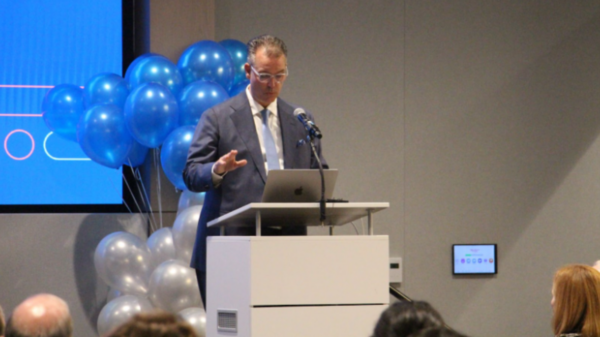BY RASA SNIUOLYTE
Credit: sniuolyte
The entire education system had to be reoriented and reorganized in a short time due to the COVID-19 pandemic.
Children’s education form changed. This sudden change, going from direct to remote, caused by unforeseen conditions affected the interaction, involvement, and roles of the participants in the educational process (children, parents, teachers).
I would like to share my close insight into how the COVID-19 pandemic affected my family member: an 11-year-old boy named Christopher.
During the time of quarantine, when everyone was studying remotely, screen time increased dramatically.
Screen time and its effects on children’s physical and mental health have been extensively studied by scientists in the last decade.
The relevance of these studies was promoted by the constantly increasing availability of various mobile devices and their excessive use in educating children of various ages.
One of the biggest issues the kids have faced with increased screen time was an addiction to the technologies.
The World Health Organization (WHO) recommends no more than two hours of screen time per day for kids between 10 and 15 years.
Unfortunately, the hours for Christopher was higher, averaging between six and eight hours a day.
This has led to various mental, physical, and behavioral issues for him, which I would like to discuss in greater detail. One of the biggest issues Christopher faced was disrupted sleep.
During the pandemic, he would sleep at midnight as opposed to 9:30 in the evening before.
He also had a habit of waking up in the middle of the night and checking his phone, which was noticed by his mom.
Unfortunately, this led to mood swings, bad eating habits (he had strong cravings for junk food), and difficulty concentrating.
It is worth mentioning that there is a bright side to this: Christopher was able to be in bed longer because he did not need to wake up early to prepare for school.
Longer screen time also led to more frequent somatic physical complaints. I noticed that Christopher expressed more stomach, head, and back pain than ever before.
It also affected his motivation and desire to spend more time outside and explore the world.
Finally, because of COVID-19, activities after school were canceled. This led to isolation from his basketball team friends and it change his socialization habits.
Christopher became more reserved and easily irritated with the mobile phones now being used as a coping mechanism for calming down and taking attention away from the main issue.
To sum it up, the COVID-19 pandemic was tough for Christopher and kids his age. Christopher‘s well-being and issues were nothing compared to the people who were fighting the virus.
I hope the educational system will improve in the future in order to help young kids to face fewer consequences.
Rasa Sniuolyte is a student from Lithuania, currently studying at Dallas College. She found her passion for kite-boarding during the COVID-19 pandemic.

You must be logged in to post a comment Login